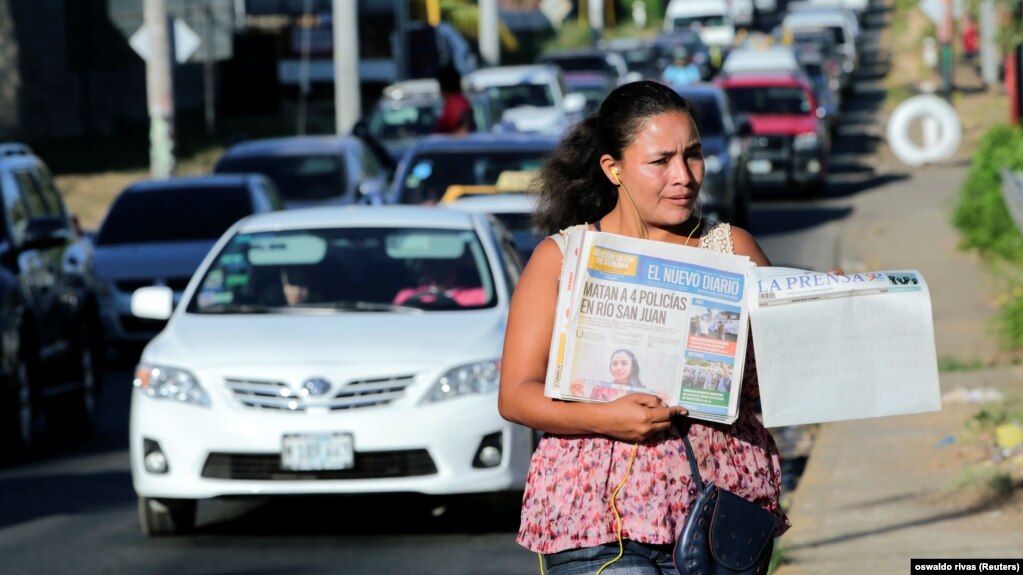In Nicaragua, Many Concerned over Press Freedoms

Reporters and observers say recent years under Nicaraguan President Daniel Ortega have severely damaged press freedoms in the country.
Over 120 journalists have left Nicaragua and a news organization is in exile. The government also took away the licenses of at least 17 media organizations over the summer.
La Prensa is one of Nicaragua’s oldest newspapers. In 2021, police raided its offices in the capital, Managua. Police took its printing equipment and detained its publisher, Juan Lorenzo Holmann. A court in March 2022 found Holmann guilty of money laundering.
La Prensa moved its operations out of the country in 2022. The newspaper said the government’s attacks on the press forced it to leave.
FILE - Police sit outside the facilities of La Prensa newspaper, a long-standing newspaper critical of President Daniel Ortega, after the Nicaraguan government took over the facilities to turn the space into a "cultural center," in Managua, Nicaragua Aug. 23, 2022. (REUTERS/Stringer)
Víctor Manuel Pérez is the director of the Independent Journalists and Communicators of Nicaragua, the country's largest union of journalists. He said, "2022 has been the worst year for independent media.”
Pérez gave the example of sports journalist Miguel Mendoza, who in February 2022 was sentenced to nine years in prison. The government accused Mendoza of "acts that undermine the independence of Nicaragua."
Mendoza reported on sports but also commented on human rights and politics. The Committee to Protect Journalists said he had been critical of the Ortega government.
Telcor is the government organization that makes rules for broadcasters. Among the media organization licenses it took away, many were local radio and television stations. Some were connected to the Roman Catholic Church, which Ortega has accused of making plots against the government.
The government said that the media organizations had broken several laws and that some had changed their frequency, which is against the rules.
Radio Darío, a Voice of America partner, was among the stations to lose a license.
Its director, Anibal Toruño, said the government’s accusations were false and that the real goal was to “shut us up."
The lack of independent radio stations in Nicaragua affects rural communities. Those areas depend on battery-powered radios to get information on everything from local news to the weather.
"Sometimes, until we go to the city, we [don't] realize what is going on...We don't know what's happening," Isabel Hernández told VOA. She lives in a rural area near the city of León.
The remaining media organizations have reduced reporting on political news. Observers say the risk of legal action or arrest is affecting the country's media.
In a report published earlier this year, the nonprofit group Voces del Sur [Southern Voices] said the government’s actions are hurting journalists’ work. Southern Voices also criticized a lack of public information during regional elections in November.
Government pressure on the press has affected international media organizations, such as CNN en Español and Spain’s EFE news agency.
Words in This Story
journalist –n. a person involved in collecting, writing and editing new stories for newspapers, magazines, television or radio
license –n. official permission to carry out some business or controlled activity
money laundering –n. the act of taking part in financial exchanges to hide the fact that the money was gained illegally
undermine –v. to make something weaker or less effective
frequency –n. the radio wavelength of a broadcast
battery –n. a storage device for electricity
regional –adj. related to an area that is different from others in a country, state or the world
https://learningenglish.voanews.com/a/in-nicaragua-many-concerned-over-press-freedoms/6895323.html